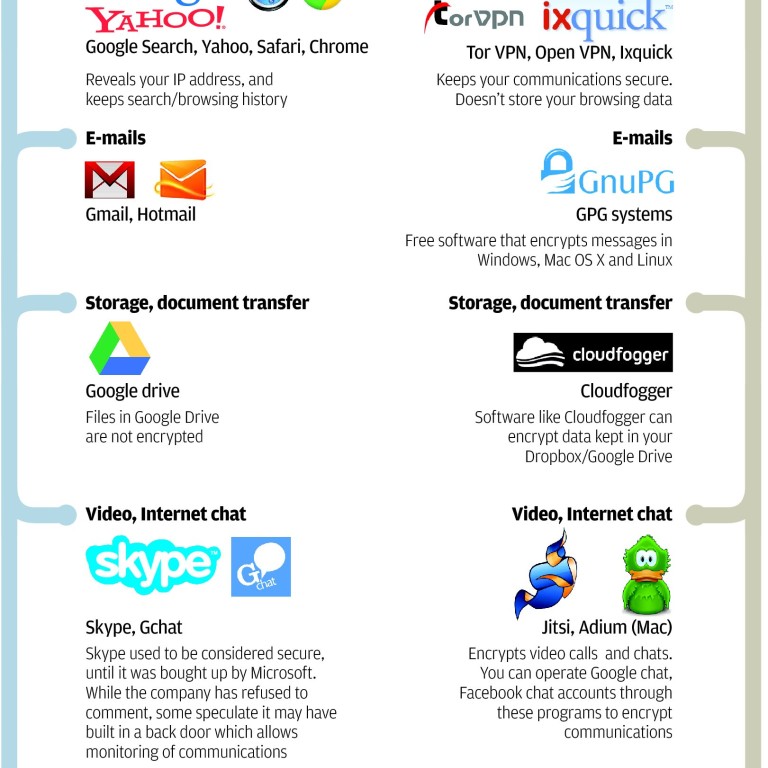
Simple solutions may be best security for your data against hackers
With whistle-blower Edward Snowden claiming the US security services have been hacking the computers of civilians in Hong Kong, the question many are asking is: how can I keep my private information private?
Covering up one's footprints online is no longer just in the realm of the paranoid.
With whistle-blower Edward Snowden claiming the US security services have been hacking the computers of civilians in Hong Kong, the question many are asking is: how can I keep my private information private?
Unfortunately, the consensus seems to be that the truly determined spy or hacker can always get your data; it's just a matter of time. But it is possible to make access more difficult.
So how do you keep access to your data through the internet down to a minimum? A number of tools are readily available.
First, get yourself a solid virtual private network (VPN). The VPN guarantees that all of the data you send and receive is encrypted and secure.
However, not all VPNs are created equal. Your information will be available to other systems connected to the same VPN - especially the network's operator - who might choose to keep it. That's why choosing the right VPN can be crucial.
A second step is to use a browser and search engine that does not record your IP address or search history. The IP address gives away your location, while the search history offers a pretty clear indication of what's been on your mind.
While Google might be most people's default choice for searches, the US giant retains all of that information - after all, knowing that a person in a particular location likes searching for dogs or flu remedies can translate into advertising dollars.
Alternatives like Ixquick, which won a European Privacy Seal from the European data protection supervisor in 2008, and DuckDuckGo do not keep hold of such information.
If you keep information online using services such as Dropbox and Google Drive, or send text messages or make calls online using services such as Skype, you should consider using an encryption program such as Cloudfrogger.
But as Snowden himself says, your data could be vulnerable to far more low-tech threats. He has spoken of keeping his data safe by wearing a big red hood over his head while looking at his computer and stuffing pillows in the gap under the door to stop surveillance.
For all the talk of multibillion-dollar US government hacking, the biggest threat to your security might just be the person looking over your shoulder.

